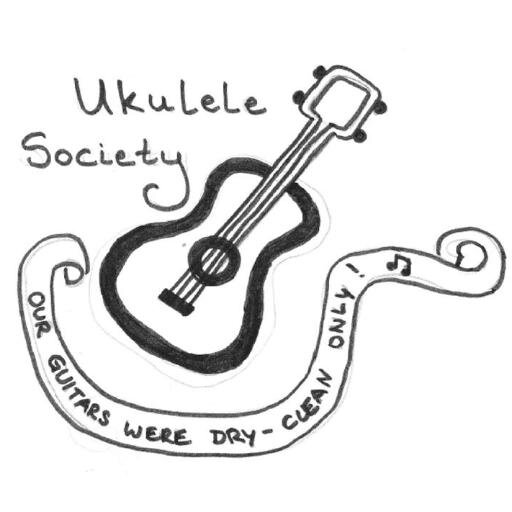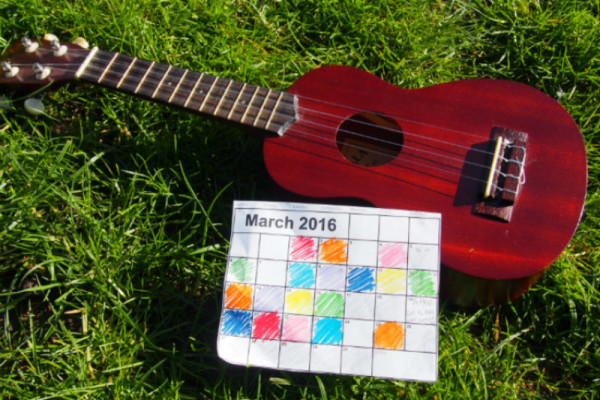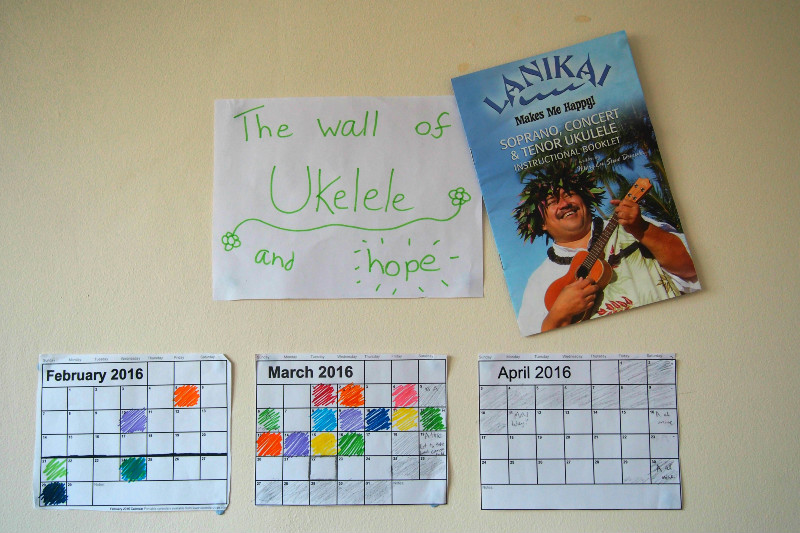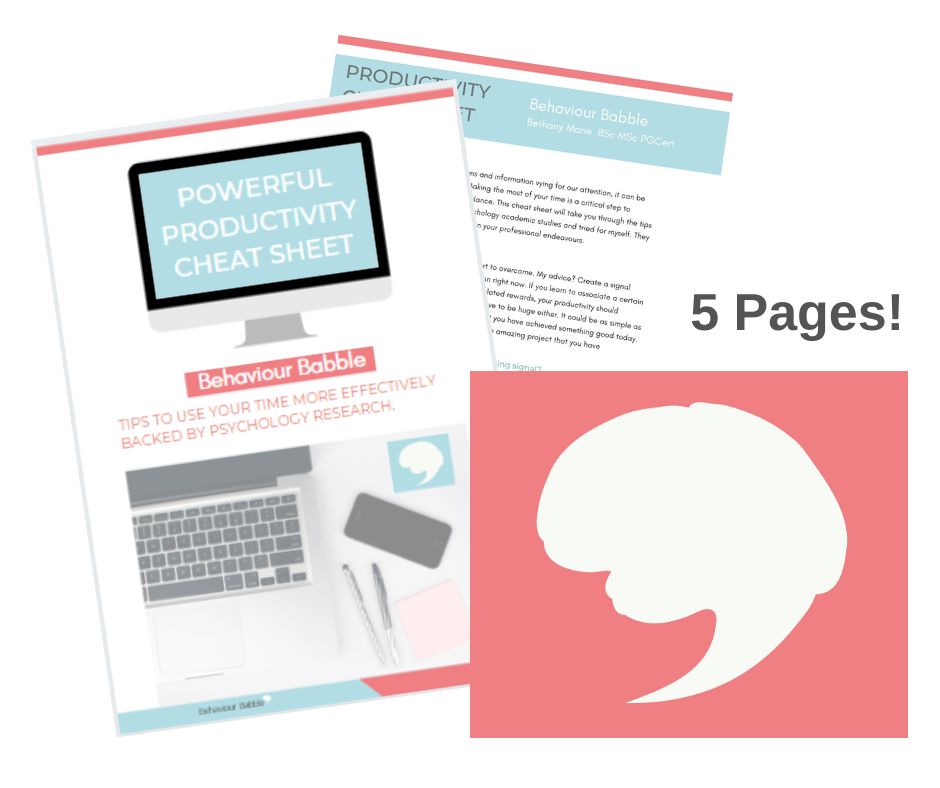Last updated on April 16th, 2020 at 11:32 am
Behaviour change projects often focus on the same things. Losing weight, quitting smoking, being more productive etc. I guess this is because these are the things that people battle with the most. But you get tired of reading about the same things. Doesn’t anybody have something a bit different that they want to change about themselves? So I thought that I would mix things up a bit and tell you how I stopped letting my beloved ukulele collect dust (using behaviour analysis)!
To hear more about how i did it, continue reading after the jump!
————————————————————————————————————————
Hold on a sec, how did you get into playing the ukulele in the first place?
The story starts back in my university days, when I found out that they happened to have a ukulele society which held group jamming sessions once a week. Curious, I went along to a session and was immediately caught up in the atmosphere of 15 uke’s playing out Dolly Parton’s “Jolene”. Me being the fun-loving and random student that I was, I decided to fork out for a uke of my own from the nearest music shop. I took the plunge and splashed out on a £50 model, which although beautiful, didn’t exactly fit into my student budget!
I don’t regret the purchase because it has given me many happy memories of strumming and singing (badly!) along to ukulele versions of cheesy pop songs. However, since I left uni life has taken over and my ukulele playing has taken a back seat. Which is a shame because I really enjoyed being able to crack out Disney songs at a moments notice! Recently I decided that I was going to get serious about playing my uke more often and I was going to use some tricks that I have learned from behaviour analysis to help me out.
 ————————————————————————————————————————————-
————————————————————————————————————————————-
How did you start up your behaviour change plan?
1) Set a goal
To kick off my behaviour change plan, firstly I needed to make it clear exactly what I wanted to aim for.
- My target behaviour was to increase the number of times that I played my ukulele
- Since I played my uke 0 times a week before starting my behaviour change plan, my first aim was to play at least one song, 2 times a week.
- My ultimate goal is to play two songs on my uke for everyday of the week
2) Find a way to measure your behaviour
Playing the ukulele was quite an easy behaviour for me to record because I was more interested in increasing the number of days per week that I was playing, rather than counting of the number of songs or the length of time that I was playing per day.So I recorded my behaviour by….
- Printing off a plain calendar with large blank squares for each day of the month.
- Cutting out the calendar squares and blue-tacking them onto a wall where they were clearly visible.
- Then every time I played my ukulele I used a colorful pen to mark this off on that day in my calendar
Alternative ideas! Are you a more dedicated musician than myself? Then you could aim to increase the length of time that you play on your instrument per day, using a stopwatch to keep a daily record.
3) Monitoring your progress
- If I played the uke that day, then I coloured in a square on my calendar. If not, then I left the square blank. Recording my behaviour was as simple as that!
- As you can see from the picture below, my ukulele playing increased from 2x a week in the first week, to 4x in the last recorded week. I’d say that a pretty impressive change has occurred considering that previously I hadn’t played my uke in months. And all it really took to bring about this change was a print-out calendar and some felt tip pens!
Since its clear that I managed to meet my goal of playing 2x per week, I will up the goal to playing 3x a week for one month and see how I get on.
—————————————————————————————————————————————-
But why was self-monitoring so effective? It’s not like you were rewarding yourself for reaching your goals.
I can only really give my own personal opinion on this matter, because the juries still out on why self-monitoring works.
I felt like this project motivated me to play the uke even on those days where I “just didn’t have the time”. I made the time. I think that I made the time because it felt good to see a string of brightly coloured-in days on my calendar, representing my perseverance with the project. But when I “ruined” this good streak by “forgetting to play”, I was left with a sad empty white square. And believe it or not, this made me feel extremely guilty!
So I believe that my ukulele playing improved with this project because I was simply trying to avoid seeing those guilt-inducing white square on my calendar. AKA negative reinforcement at work!
—————————————————————————————————————————————
I’ll be keeping you guys updated with my progress, so lets hope that my motivation can keep up!
Has this inspired you to start up your own behaviour change project? If so the check out this page to help get you started!
Aloha for now!
Beth is forever curious about what makes people tick. She is a master’s degree graduate and former psychology teacher (AKA a proud behaviour nerd!). Autism awareness is a cause close to her heart – check out her fundraiser. Beth becomes her happiest self when she’s helping people like you to enhance your life.
Join our community. Get ahead. Make the most of your time with our free guide!






